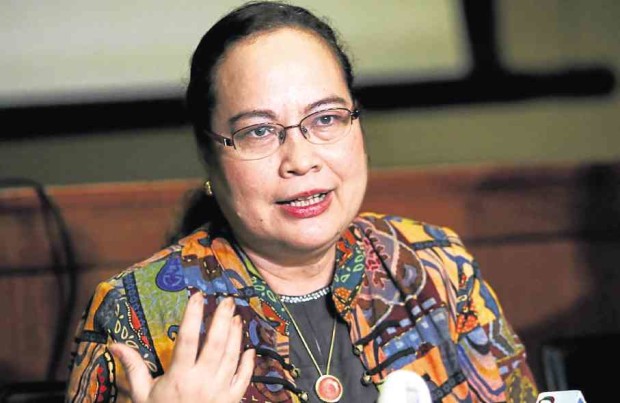No condoms in schools–DepEd
The Department of Health (DOH) will no longer push through with its plan to distribute condoms in schools following the Department of Education’s (DepEd) decision to block the DOH initiative.
“The recommendation to involve schools to provide services to improve condom access is not anymore a primary consideration after DOH and DepEd agreed to take a different path but which shall still complement each other’s prerogatives,” said Health Secretary Paulyn Ubial.
According to Ubial, the DepEd will focus on human immunodeficiency virus (HIV) information and education where appropriate, while the DOH will work with other partners to ensure information is linked to service provision including but not limited to condom access.
On Monday, DepEd Secretary Leonor Briones finally made a decision that the DepEd will not be involved in the DOH condom distribution program.
Briones also cited the agency’s responsibilities, based on an executive order and a Supreme Court decision, to enhance gender sensitivity and reproductive health education.
Article continues after this advertisement“We will follow the Unesco guidelines on reproductive health, including the requirements of the Constitution and the law… obviously what we’re allowed to do is to improve the curriculum. Nothing within the school premises because right now you have the health centers who are already tasked with that function… ‘Yung consequence ng premarital sex, the dangers involved but not the distribution,” Briones said.
Article continues after this advertisementThe DepEd also promised to improve and develop sex education in the country that is covered by the human rights frameworks, as well as the safety of the students with age-appropriate and developmental reproductive health education that will start in Grade 1.
Ubial, on the other hand, said the DOH respected the decision of the DepEd.
“We respect the DepEd decision. The DOH totally supports DepEd’s stance to develop and roll out age-appropriate reproductive health education in public schools, at the same time raising HIV awareness among at risk and vulnerable population, now increasingly affecting the youth,” Ubial said.
“This is an essential component of the DOH’s HIV comprehensive prevention and control program focusing on abstinence, condom use, early HIV testing, peer counseling, antiretroviral treatment and ending stigmatization and discrimination. Improving condom access is critical to reverse current HIV trends,” she said.
The distribution of condoms will continue to take place in health centers now that the DepEd has made a decision.
“Health Center pa rin, health services like condom access and use. We are talking with NYC (National Youth Commission) and other sectors for peer distribution,” Ubial said.
